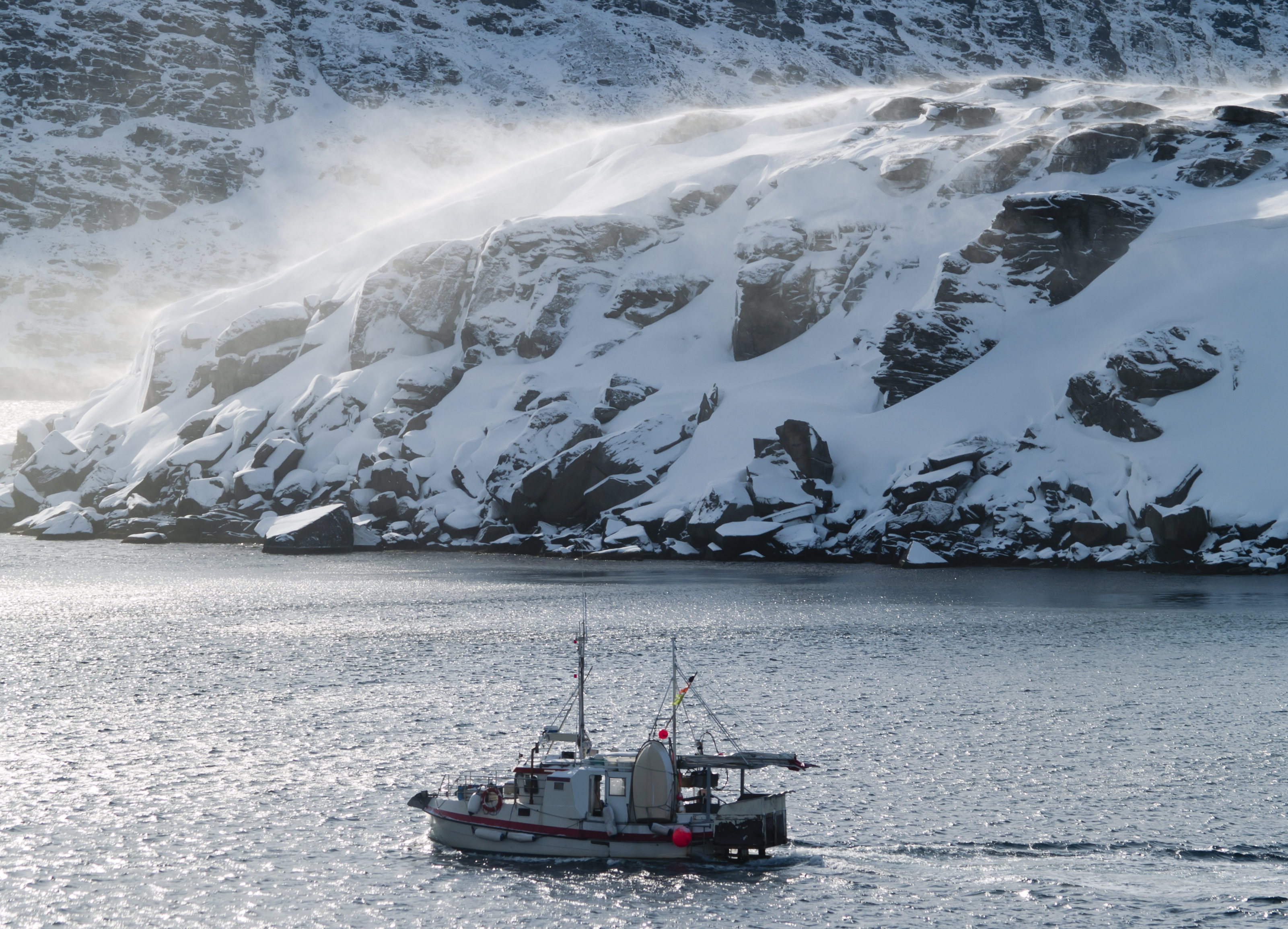Negotiators may soon have an agreement to stop high Arctic fishing

Governments with Arctic Ocean territory or interests in the Arctic Ocean appear close to a binding agreement that will keep commercial fishing vessels out of international waters at the top of the world.
The next — and possibly final — meeting to negotiate such an agreement has just been scheduled for Nov. 28-30 in Washington, to be hosted by the U.S. State Department.
That means a binding agreement could come within a few months, said David Benton, a member of the U.S. Arctic Research Commission and a longtime Alaska fishery manager advocate who has been an observer at the negotiating meetings.
“Best-case scenario is by the end of the calendar year or early next year the 10 parties agree, at least, on a text,” Benton said. From that text, a binding legal agreement would be crafted, he said.
Scott Highleyman, head of Arctic programs for the Ocean Conservancy and part of the U.S. negotiating team, is also optimistic.
“We’re well on our way toward taking globally significant action in the Arctic to put science, international cooperation and Arctic people first,” he said in an email. “But it’s really important for countries to finish strong.”
At issue is the 1.1 million-square-mile (2.8-million-square-kilometer) segment of international waters in the central Arctic Ocean, a zone that is called the “Arctic donut hole.” No commercial fishing takes place there now, but dwindling sea ice could make the once-frozen area accessible to vessels that would carry out completely unregulated and unrestricted harvests — unless there is some kind of international agreement to prevent that.
The five nations with territory bordering international waters of the Arctic Ocean promised in 2015, through a non-binding pact, to keep their commercial fishing vessels out of that international ocean water. Within months, diplomats from those five countries — the U.S., Canada, Norway, Russia and Denmark/Greenland — joined with the governments of Iceland, Japan, South Korea, China and the European Union to negotiate a binding agreement to that end. (The Arctic nations of Sweden and Finland are EU members and are thus represented by the EU in the negotiations.)
The five negotiating sessions held so far have produced general agreement on the goal of preventing commercial fishing in Arctic international waters until managers know if the area can sustain any harvests, Benton said.
The one remaining sticking point is about what happens if and when the scientific information collected by the nations supports commercial fishing, Benton said. If that point is reached, he said, “how do you get to the next step?”
Specifically, the issue to be resolved is how to start creating a fishery-management plan in the Arctic donut hole should scientific studies conclude that fishing can be conducted responsibly there, he said. Such a plan would have to be in place before there is any fishing, he said.
An Arctic fishing moratorium, if signed, may wind up as a bright spot in an otherwise distressed U.S. foreign policy hampered by apparent dysfunction and a rocky relationship between President Donald Trump and Secretary of State Rex Tillerson. (Many key State Department positions remain vacant, including the positions of special U.S. representative for the Arctic, held until January by former US Coast Guard Commandant Robert Papp.)
But whatever chaos may exist within the Trump administration has not derailed the Arctic fisheries negotiations, Benton and Highleyman said. On this subject, the State Department continues to function smoothly, they said.
Career diplomat and Arctic expert David Balton, the State Department’s deputy assistant secretary for oceans and fisheries, continues to chair the fisheries negotiations, as he did during the Obama administration. With Balton, his State Department team and other participants, the U.S. “has remained a strong leader on this issue,” Highleyman said.
The idea of a fishing moratorium in the Arctic donut hole has been promoted for years. In 2012, more than 2,000 scientists from 67 nations signed an open letter urging it. Last week, a follow-up open letter was signed by scientists from nine nations urged the parties to “conclude a successful agreement, demonstrating their commitment to sound stewardship for the Arctic Ocean and peaceful international cooperation.”
Aside from the promise of protecting Arctic waters from unregulated fishing, Benton said, there has been another benefit to the negotiations — enthusiasm support from the 10 governments for cooperative Arctic marine science. For the U.S., there are some particular benefits, he said. U.S. researchers could make use of other nations’ icebreakers, a big help for a nation that has limited icebreaker capacity, he said.
Benton has special experience in international fisheries matters. He served as Alaska’s international fisheries negotiator and helped craft the 1994 agreement that protected the approximately 50,000-square-mile international Bering Sea donut hole. In that case, unregulated fishing had been underway for years; harvests were so big they caused long-lasting damage to stocks of Bering Sea pollock. The agreement was signed by the U.S., Russia, Japan, Korea, China and Poland.